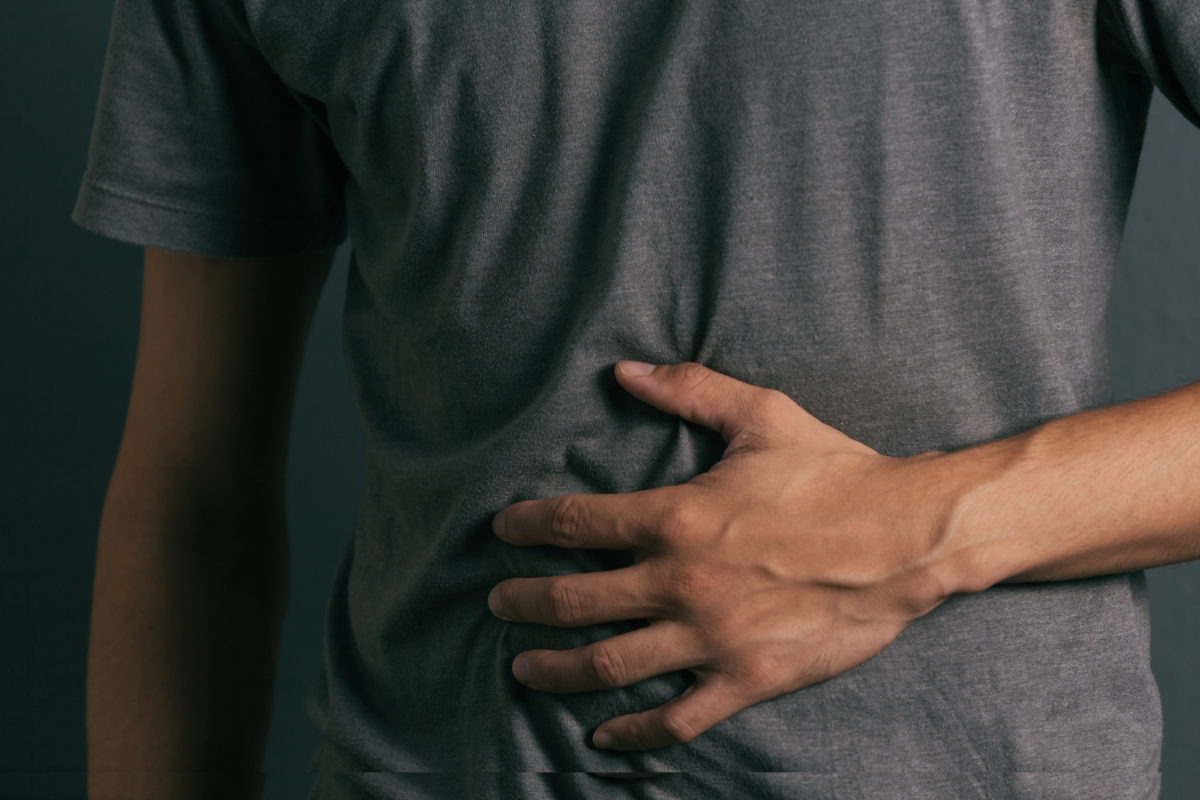ADHD and the brain-gut connection: food for thought
- thrivister
- February 2, 2022
Are you looking for a change in your life, school, or work? Do you feel like you need to reinvent the wheel to get there? Well, you really don’t! Huge changes are hard to maintain and often unrealistic. While we’re busy improving ourselves, we tend to forget about the little things that can make a big difference. One of those small changes is adjusting what we eat–because the way we take care of our gut has a huge impact on our overall physical and emotional health. Let’s take a look at ADHD and the brain-gut connection.
The brain-gut connection
 Have you ever had a ‘gut feeling’ or gotten butterflies in your stomach when you were nervous? Well, it isn’t just a feeling—there’s something more going on. It’s called the brain-gut connection.
Have you ever had a ‘gut feeling’ or gotten butterflies in your stomach when you were nervous? Well, it isn’t just a feeling—there’s something more going on. It’s called the brain-gut connection.
According to Harvard Health, “The brain has a direct effect on the stomach and intestines. For example, the very thought of eating can release the stomach’s juices before food gets there. This connection goes both ways. A troubled intestine can send stress signals to the brain, just as a troubled brain can send distress signals to the gut. Therefore, a person’s stomach or intestinal distress can be the cause or the product of anxiety, stress, or depression. That’s because the brain and the gastrointestinal (GI) system are intimately connected.”
It’s important for your brain and gut to be “in sync”, or working as they should in harmony with one another. When they are aligned, you feel more focused and energetic. When they’re out of sync, the brain-gut connection can wreak havoc on your mental and physical state in the form of anxiety, stress, and physical discomfort making it difficult to maintain focus and a balanced mood.
Microbes & neurotransmitters
So, what exactly is going on in our gut? It’s home to millions of microbes: tiny organisms similar to fungi that rely on good bacteria to grow. When these gut microbes are healthy and balanced, they’re better at producing neurotransmitters, including serotonin, which contributes to feelings of happiness, and GABA, which helps control feelings of fear and anxiety.
The brain and gut communicate by sending signals via the nervous system, hormones, and the immune system. For example, when we experience a fight-or-flight situation, our nervous system communicates with our gut to stop digestion and instead use that energy to address the threat.
ADHD & the brain-gut connection
Microbe imbalances can impact this communication between the brain and gut. Research suggests that ”digestive-system activity may affect cognition” and that “irritation in the gastrointestinal system may send signals to the central nervous system (CNS) that trigger mood changes.”
Because the gut plays an important role in emotional regulation and cognition, scientists are looking into whether ADHD might be related to the brain-gut axis. A 2017 study found that subjects with ADHD had an “increase in microbiome function related to decreased neural responses to reward anticipation […which] constitutes one of the hallmarks of ADHD.” Reward anticipation is a person’s ability to visualize an incentive or outcome and act accordingly, like imagining a goal and getting motivated to work towards it. This process “helps individuals maintain appropriate behavior during periods of waiting. For those with ADHD, the symptoms of inattention, hyperactivity, and impulsivity may arise from behaving in ways that lead to immediate reinforcement.” In other words, people with ADHD might have a slightly different gut environment that makes it more difficult to focus and behave appropriately in certain situations.
While researchers continue to work on a better understanding of the link between the gut and ADHD, you might find that a more nutritious diet can help you better retain the techniques you’re learning with your academic coach. It’s worked for students before…
Adopting a better diet while working with a coach

Many of my students with ADHD struggle with remembering tasks. One of those students, Tyra, was having a hard time staying on track in school because of her forgetfulness. Despite the clear action plan and accountability system we developed, she struggled to remember what to do—even with set reminders. It was extremely frustrating for her because she was working hard to improve, but things still slipped her mind.
Tyra’s diet consisted mainly of junk food and sugary drinks. She’d have a lot of sugar late at night, then not eat for long periods during the day. I encouraged her to adjust her diet and think about what she was eating. My experience with other clients told me that improving her brain-gut connection could make the difference.
Tyra also struggled with emotional regulation, which made it challenging for her to stay on task. When an assignment was too difficult, she would get upset and had a hard time getting her emotions back under control to move forward. Her issues with emotional regulation had a ripple effect—she’d lash out at friends and family, damaging her relationships, which led to more distracting emotions. It was a vicious cycle.
Over time, Tyra’s mom also encouraged her to reduce the amount of junk food she was eating. With encouragement from both her mother and myself as her coach, Tyra started to monitor her diet and introduced nutritious foods. It takes time to build a healthy gut, but she eventually started to see the benefits, including more mental clarity and stronger problem-solving skills. She had more energy and focus, and started to see significant improvements in her mood and academic performance.
Nutrition & lifestyle changes to improve brain-gut health
Gut health is critical in getting our minds and bodies to function the way we want them to. But you don’t have to completely overhaul your diet to start improving your brain-gut connection. Here are a few foods you can introduce (in moderation) to help balance your gut’s microbiome:
- Yogurt
- Cheese
- Fermented foods
- Salt in moderation (reduces bad bacteria)
- Omega-3 fats
- Whole grains, nuts & seeds
- Eggs
In addition to improving your nutrition, there are other small changes you can make to promote a healthy gut:
- Get a good night’s sleep
- Drink more water
- Avoid alcohol
- Take vitamins and minerals, including probiotics, prebiotics, and B vitamins
- Exercise regularly
Small changes can lead to big benefits

Working on your brain-gut connection is not about losing weight or going on a “diet” in the old sense of the word. Improving the quality of what you eat will only bring positive changes to your energy, mood, and productivity. Some of the changes associated with improved brain-gut health include:
- Increased clarity and focus
- Reduced stress and anxiety
- Stable and improved moods
- Less digestion and GI problems
- More energy and motivation
Hands-on strategies to improve brain-gut connection
Changing your lifestyle and nutrition takes time – it’s a marathon, not a race. Rather than completely overhauling your diet, consider making small, incremental changes. Some strategies include:
- Think about adding to your diet, not subtracting: Instead of cutting out junk food entirely, try adding an extra serving of fruit or vegetables to one of your meals. Increase these servings and you’ll find yourself filling up on nutrient-dense foods rather than sugary snacks.
- Be prepared: If you have the time, prepare your breakfast and pack a lunch the night before. Keep a bag of nuts or a piece of fruit in your backpack so you’re less likely to grab a piece of candy at the vending machine. Being prepared helps reduce ‘decision fatigue’ — making it easier to choose the better option in the moment.
- Make a small swap: Pick a snack or drink you’re indulging in more often than you’d like, like your afternoon energy drink or midnight bowl of ice cream. Experiment with more nutritious options until you find something that satisfies the same cravings. Unsweetened ice tea might give you the same focus boost of an energy drink without all of the added sugar. A banana could be a good substitute for ice cream, a sweet treat with the benefit of extra fiber and vitamins.
- Don’t deprive yourself: Cutting out all of your favorite treats suddenly and permanently can have the opposite effect you might expect — eating plans that are too restrictive can trigger overeating or cause self-esteem issues. In an article about restrictive eating, psychologist Carrie Gottlieb cautions people about the mental health consequences of restrictive diets, and advises that you “remind yourself that no food is inherently good or bad. Focus on balanced eating and allow all foods in moderation for a healthier approach.”
Changing your lifestyle one step at a time
If you’re struggling to keep up in school, you probably feel like you don’t have time to tackle lifestyle changes too. Keep in mind that you don’t need an ‘all-or-nothing’ approach to make progress. One extra serving of fruit at breakfast might give you the boost you need to study a little longer. Swapping that third can of soda for a glass of water could help you get a better night’s sleep. In other words, small changes in one area of your life can have positive effects in another. Just a little food for thought.
This blog provides general information and content about health. The information and other content provided in this article, or in any linked sources, are not meant as medical advice, nor as a substitute for professional medical expertise. Consult with your doctor or health care professional.

A true believer in an individualized approach to academics, Katy has been working in education for the past 15 years in a variety of different roles, including admissions counseling and student & career services. She has a bachelor’s degree in communication with an emphasis on civic advocacy, and is currently working on her master’s—meaning she’s a student right there with you! An adaptable, and calm coach, Katy is passionate about helping students overcome the academic, behavioral and social challenges that are getting in the way of their success. Having overcome her own significant personal obstacles, she is driven and inspired in her own life through the changes and accomplishments she sees in her students.

7 Trailblazing Celebrities and Icons Living & Thriving with ADHD
Explore the inspiring journeys of 7 influential individuals who have harnessed their ADHD to achieve greatness and make a lasting impact.

Unveiling the Complexities of ADHD: Insights from Dr. David Pomeroy
Unveiling the Complexities of ADHD: Insights from Dr. David Pomeroy https://youtu.be/EotABukIxlo Attention Deficit Hyperactivity Disorder (ADHD) is a multifaceted condition that impacts millions of lives

Navigating ADHD in Teens: Insights from MFT, Kelsey Thompson
Navigating ADHD in Teens: Insights from MFT, Kelsey Thompson https://youtu.be/omQndscdD5U In a recent interview with Kelsey Thompson, a seasoned Marriage and Family Therapist at The

Unlocking Potential: A Glimpse into Fusion Academy’s Personalized Education Model
Unlocking Potential: A Glimpse into Fusion Academy’s Personalized Education Model https://youtu.be/R7BgYW6A6k4 In the bustling world of education, where traditional models often struggle to meet the

